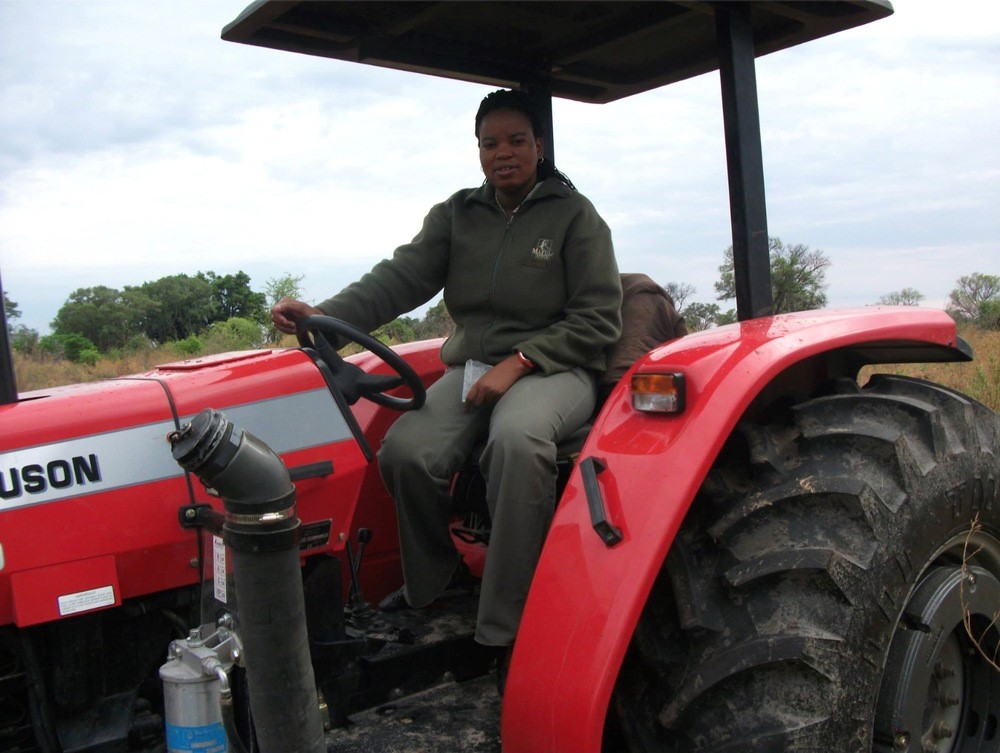
How Profitable Can Agriculture be? Meet Mavis Nduchwa
From an undergraduate study in real estate and hospitality to a career as a TV presenter and now Farmer, Botswana’s Mavis Nduchwa, 34 has straddled several hats. She had an early start in her journey to entrepreneurship from high school, where she sold sweets to fellow students, helped students write their essays and letters for a small fee and now to running one of Botswana’s fastest growing agriculture enterprise, Chabana Farms.
While Agriculture/Agribusiness makes up a major source of revenue and employment to Africans, it is rare to find a young woman engaged in rural farming. But Mavis has challenged this norm by successfully managing Chabana farm in Botswana. Born on a farm in rural Francistown in Eastern Botswana, near the border with Zimbabwe, she developed an interest in agriculture at an early age. However, as she grew older, the allure of city life drove her to earn a degree in real estate and hospitality management. But with the realities of the high cost of agricultural inputs strangling her farming community, Mavis sensed that affordable, locally produced food and poultry will be a substitute for the expensive imported kind, boosting the agribusiness sector. She quit her job in the hospitality industry and teamed up with her husband Brighton Chabana to found Chabana Farms in 2011.
Mavis set out to solve the problems of lack of jobs for women and youth, shortage of food such as vegetables and meat products, people having to travel far to get basic commodities. Setting up an all integrated farm — cattle, goats, donkeys, poultry, piggery, vegetables and horticulture with a vision to not only provide food for the nation but to empower individuals in the community. Six years later, Chabana Farms has become a successful agribusiness enterprise.
Her journey to the Tony Elumelu Entrepreneurship Programme she says started when a friend and manager of mine came to visit from Uganda and after seeing what she had on ground in her farm she encouraged her to enter for the programme but completing the application became a daunting task as she had to overcome the hurdle of internet access which was not readily available in her community.
Months later Mavis would get the news of her selection as one of the beneficiaries of Tony Elumelu Entrepreneurship Programme, which she says was a defining moment in her business.
“I wish I had known a lot of the information that I learned through the 12-week online learning programme before launching my business. Aspects of running a business like identifying problems, effectively solving them, the importance of market research and insight, branding and packaging my products, and building networks. I did not know any of these prior to the training. The programme opened my eyes to building my brand. Today I have a website, existing brand collateral and I smile every time I am in a shop and see people carrying my eggs in their trolleys. The feeling is priceless. The entire programme was fulfilling. I am now part of a robust alumni network so any questions I have I know I can share with fellow farmers on the platform”
Beyond the direct benefits to Chabana Farms, being a part of the TEF programme has also brought the needed exposure for Mavis and her team as she has been recognised on a number of platforms including Ampion Venture Bus SA 2015, Global Youth Summit in Bangladesh (youth in Agriculture), and membership of Lioness of Africa (a network of women in Africa that are making a difference in their communities).
Chabana Farms now occupies 247 acres, and grows grains and legumes such as lablab (a legume that produces high-quality forage for livestock), maize, sunflower, sorghum, beans and groundnuts. Beyond its day-to-day operations, the farm, which employs 10 full-time staff, also provides six weeks’ training in managing a poultry business for unemployed single mothers. Those who receive the training are able to start their own businesses. Mavis is not only making Agriculture cool but also making it profitable, as Chabana Farms have also recently been awarded a $2 million contract by the government of Botswana to supply jugo beans to the local market and , In a good rainy season they can make up to $1.5 million in profits.
For Mavis, the journey to impact has just started and she encourages others who have chosen this path of entrepreneurship not give up. “No matter how long the road might seem, if you just persevere, it will all work out.”
